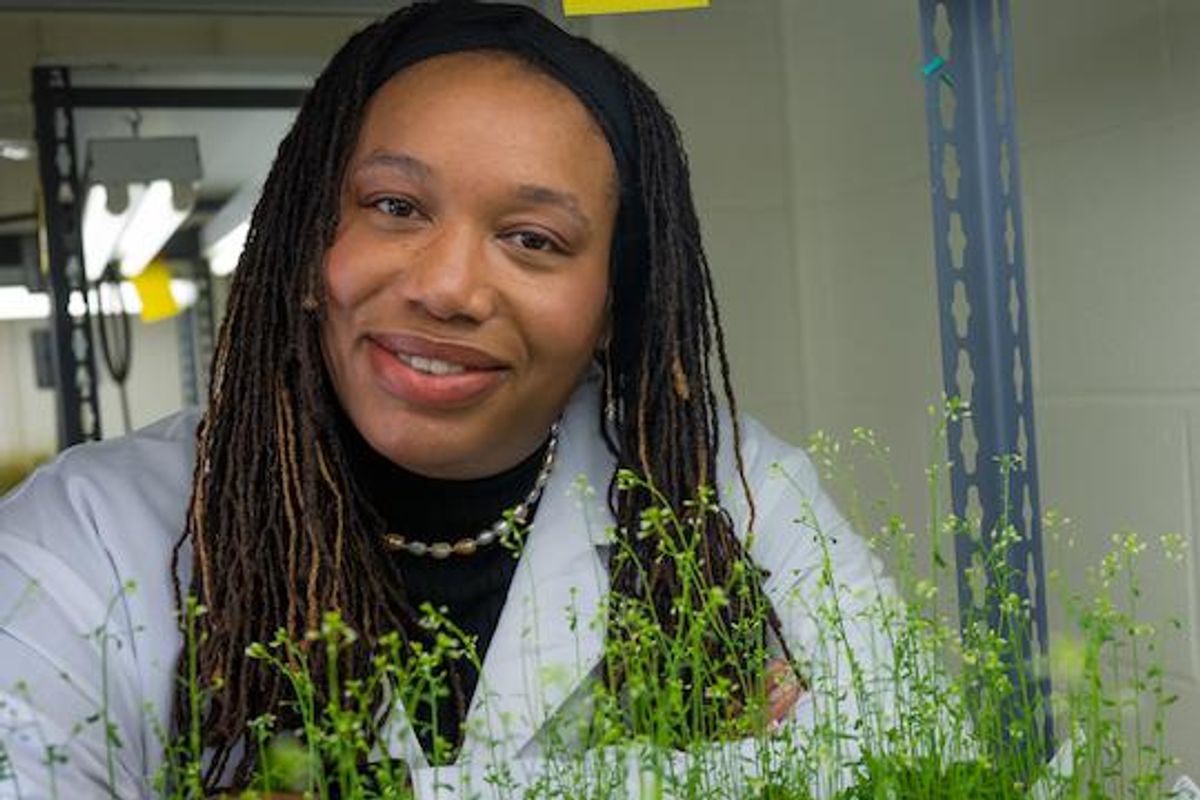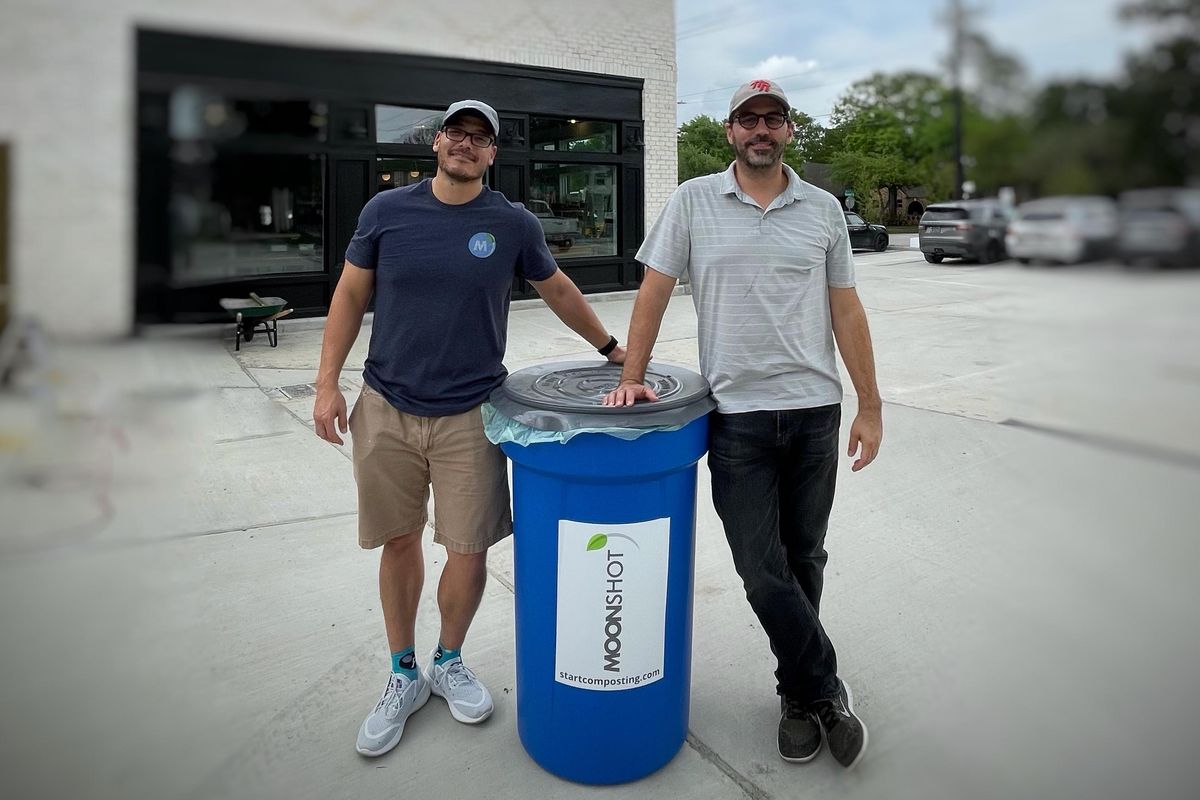Houston beauty startup raises $1M, medtech accelerator opens apps, and more local innovation news
short stories
The month of May has started strong with Houston innovation news, and there might be some headlines you might have missed.
In this roundup of short stories within Houston startups and tech, local universities share big moves in cybersecurity and plant research, a Houston entrepreneur raises extra seed funding, and more.
Houston medical technology accelerator opens applications

This medtech startup accelerator has applications open. Graphic via proximacro.com
M1 MedTech, Proxima Clinical Research's medical technology accelerator is accepting applications for its fall cohort. The program is seeking five to seven early-stage medical device companies for the three-month program. The cohort companies will have investment opportunities up to $100,000 as a combination of both cash and in-kind services.
“Our program is unique in that it combines acceleration capital, company building expertise, and the regulatory and clinical services of a top CRO,” says Larry Lawson, a venture partner and investor with M1, in the news release. “Access to the M1 founders’ network, both within and outside of the Texas Medical Center, sets these companies up for success. There’s no better group to build a MedTech company with, period.”
M1 MedTech, which was announced last year, was created to support early-stage medical device companies with a unique coaching process that will include a curated educational program, interactive workshops where participants can continually build out specific company deliverables, and tailored one-on-one mentoring.
“Many MedTech companies are launched by innovative first-time founders with strong scientific and medical expertise, but who have never taken a regulated product to market or built a business. After working with so many companies at various stages of this journey to market, both with Proxima CRO and with accelerators from across the country, we realized there was a gap that needed to be filled for these rising founders. They not only need regulatory and clinical assistance from experts with hundreds of success stories in this field, we found they also need assistance with design, manufacturing, business, IP, and so much more,” says Isabella Schmitt, RAC, Director of Regulatory Affairs for Proxima CRO and Principle at M1. “These rising founders need to know what they don’t know; so, we put a lot of thought into what emerging companies and rising executives really need, and from that, we built the M1 curriculum.”
Applications will remain open until May 31. To apply for the Fall 2022 cohort or to learn more about M1 MedTech, visit m1medtech.com.
Houston entrepreneur adds $1M to seed round

Houston-based Upgrade has raised additional seed funding. Photo via LinkedIn
Houston-based Upgrade Boutique — which uses technology to connect women with high-quality wigs and hair extensions — extended its seed round by $1 million, Fast Company reported. The round's initial seed leaders included Houston-based venture capital firms Artemis Fund and Mercury Fund, as well as Logitech president and CEO Bracken P. Darrell and ANIM.
“This [investment] will enable us to scale even faster and continue to invest in tools and resources that will improve the consumer experience, and help stylists operate more efficiently,” Winters tells Fast Company. “Based on feedback from the stylists on our platform, we see this as a natural development in the company’s evolution.”
University of Houston joins cybersecurity initiative

UH joins group that's advancing cybersecurity. Image via Getty Images
The University of Houston has joined a consortium that's funded by the U.S. Department of Defense (DoD) to launch a virtual institute that will recruit and train the next cybersecurity generation that will protect entities from cyber warfare, cyber espionage, and attacks on the electromagnetic spectrum.
The virtual institute is called VICEROY — Virtual Institutes for Cyber and Electromagnetic Spectrum Research and Employ — DECREE and will be led by Northeastern University and offered across five universities, including UH, Northern Arizona University, the University of Texas at Austin, and the University of South Carolina.
“The VICEROY DECREE virtual institute consortium model is transformational. It brings together the best offerings from multiple institutions to meet the workforce training needs in these domains," says Hanadi Rifai, Moores Professor of civil and environmental engineering and UH team lead on the project, in the news release.
One major focus for the program is the electromagnetic spectrum, which includes radio waves, and is a critical enabler for communications, navigation, radar, training and other military operations. The DoD has been seeking to hire more than 8,000 cyber workers to help defend the virtual space.
"We recognize the importance and need for workforce training in cybersecurity, electromagnetism, cryptography and data science. These are areas of specific focus and expertise on our campus,” says Paula Myrick Short, UH senior vice president for academic affairs and provost, in the release.
The two-year program starts in fall 2022 and is funded by a $1.5 million award from the Griffiss Institute, a nonprofit talent and technology accelerator for DoD and its academic, government, and industry partners around the world.
Local composting company moves into new Houston space and expands to Austin

Moonshot has expanded locally and statewide. Photo courtesy of Moonshot
Houston-based Moonshot Composting has announced its relocation to a 8,225-square-foot space in Northside Village at 1410 Bigelow St. The former Yellow Cab outpost is over five times the size of the originally location.
Additionally, this month Moonshot will open its doors in the greater Austin area with a facility in Creedmoor, just south of Austin. Moonshot's first commercial customer was Austin-headquartered Tacodeli.
The company has grown its business to nearly 500 subscribers, including 40 commercials accounts, as well as seven full-time and four part-time employees. Moonshot is diverting 30,000 pounds of food waste a week, with a total of nearly 1,000,000 pounds diverted since July 2020, per a news release.
“We are excited about our growth and all the individuals and companies getting on board to get food waste out of landfills and onto composting sites,” says Chris Wood, Moonshot principal and co-founder, in the release. “Our new space will make for more efficient operations all around.”
Moonshot Composting's commercial subscribers include Rice University, Houston Baptist University, The Awty International School, ConocoPhillips, Snooze Eatery, Ostia, and Amli Residential.
Rice University biologist wins NIH award

This Rice University scientist has received national recognition for her work plant cell analysis. Photo courtesy of Rice
A Rice University postdoctoral fellow and molecular and cell biologist has received a prestigious National Institutes of Health award.
Durre Muhammad of Rice Academy won the MOSAIC (Maximizing Opportunities for Scientific and Academic Independent Careers) K99/R00 award, which is intended to help postdoctoral researchers transition into careers while enhancing diversity within the academic biomedical research workforce, according to a news release from Rice. She's only the fourth individual from Rice to receive this recognition.
The first two years of the award will support the biologist's work in Bonnie Bartel's lab. She is working on defining the mechanisms by which cells in plants identify and eliminate damaged or obsolete organelles known as peroxisomes, which also play important roles in human aging.
“Our lab in general works on all things peroxisome, and I mainly focus on the latter stage when it’s ready for degradation,” Muhammad says in the release. “We identify the signals and different mechanisms involved in the process of decay.”
Muhammad joined Rice in 2018. She earned her Ph.D. in plant and microbial biology at North Carolina State University and her bachelor’s degree in biological sciences from the University of Illinois Chicago. She also has her MBA from Benedictine University. She received an NSF Postdoctoral Fellowship in Biology in 2019.
“Durre is a fantastic scientist who has brought new perspectives and approaches to my lab,” says Bartel, the Ralph and Dorothy Looney Professor of BioSciences. “We are delighted that NIH has recognized her accomplishments and potential with this award.”

 Brothers-in-law Chris Wood and Joe Villa co-founded Moonshot Composting in hopes of improving Houston's environmental future. Photo courtesy of Moonshot
Brothers-in-law Chris Wood and Joe Villa co-founded Moonshot Composting in hopes of improving Houston's environmental future. Photo courtesy of Moonshot Apple doubles down on Houston with new production facility, training center Photo courtesy Apple.
Apple doubles down on Houston with new production facility, training center Photo courtesy Apple.